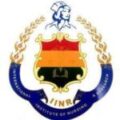Curriculum:
- The B.Tech in Chemical Engineering curriculum includes essential subjects such as Chemical Reaction Engineering, Thermodynamics, Fluid Mechanics, Mass Transfer Operations, Process Design and Simulation, Chemical Process Industries, and Environmental Engineering. This comprehensive curriculum equips students with the theoretical and practical skills necessary to work in various chemical processes and industries.
Internship/Practical Training:
- Practical training is an integral component of the Chemical Engineering program. Students engage in internships, laboratory experiments, and industrial training, where they gain hands-on experience in chemical processes, safety protocols, and equipment operation. Internships are typically conducted in chemical manufacturing plants, research laboratories, or consulting firms, providing students with valuable exposure to real-world challenges and solutions.
Job Prospects:
- Graduates in Chemical Engineering have a wide range of job opportunities in industries such as petrochemicals, pharmaceuticals, food processing, materials, environmental engineering, and consulting. With the growing emphasis on sustainable practices and the efficient use of resources, chemical engineers play a crucial role in developing processes that are both economically viable and environmentally friendly.
Salary Range:
- Entry-level salaries for Chemical Engineering graduates typically range from INR 3 lakh to 8 lakh per annum, depending on the role, organization, and location. With experience and expertise, especially in specialized roles, chemical engineers can expect higher salaries and greater responsibilities.
Further Studies:
- After completing B.Tech in Chemical Engineering, graduates can pursue M.Tech in Chemical Engineering, M.Sc. in Chemistry, or MBA in Operations Management. Additionally, pursuing certifications in areas like Process Engineering, Environmental Management, or Safety Engineering can enhance career prospects and specialization opportunities.












